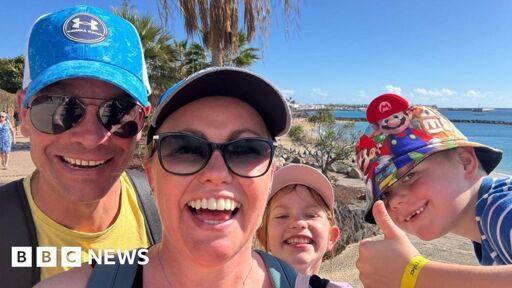Until now there has been no treatment. But on Wednesday researchers reported how a new gene therapy had managed to slow progress of the disease by 75%.
Very good news! I hope the treatment will be relatively inexpensive for all.
Well, it will not. It will cost >US$3M, and few countries could even handle the number of surgeries required.
Shame on the BBC and their unbridled hype on this. You will need to win the lottery ten times over to pay for this.
But this is a SINGLE UNCONTROLLED trial and not approved. Once again, HD families are being hyped on a therapy will little public release of data. This is not the first time a “cure” goes practically nowhere for this disease. And again, the same two British researchers in front of this hyping as they did in the past. This is extremely unprofessional and irresponsible.
People got very rich off QURE stock this week.
The concept is promising. There was a much cheaper oral drug that showed similar efficacy in phase two trials this summer and the media ignored it. Lazy journalism or a clear agenda, not sure what is going on. There is a real drug further along the approval pipeline that will not be just for billionaires. Somehow the BBC doesn’t know this.
There was a much cheaper oral drug that showed similar efficacy in phase two trials this summer and the media ignored it.
Which drug is that? You’re not kidding about “media ignored it” I tried searching and found nothing.
@SaveTheTuaHawk@lemmy.ca I’m curious too. Please don’t tell me AI told you about an oral drug…
Treatments get cheaper over time. Typically, at least.
Might be covered by the NHS. They pay similar prices for other gene therapies.
Not a chance in hell. Id be surprised if any insurance will even cover it. It’s an 18 hour brain surgery.
That’s fucking incredible
Heard this news on a podcast a few days ago, and I had to actually stop making breakfast and listen to it because it was just so amazing. This is incredible news!
You’d have to win the lottery to afford it, especially in the United States.
What an incredible discovery. Quite nice to see news like this with all that crap that’s going on in the world.
So far, just the headline findings have been released. Scientists say the full study needs to be published and assessed by independent experts to properly assess what has been achieved.
The study is also relatively small - there were just 29 participants who were followed for 36 months. This is not unusual for gene therapies, and others have made it onto the NHS off the back of small-scale trials. The case for this treatment is particularly strong given there are no current treatment options for the disease.
But even if this therapy is licensed, it is only going to help a small portion of Huntington’s disease patients as it’s aimed at those with early-stage symptoms or those who haven’t developed any yet. The complex nature of the surgery also means only specialist centres will be able to perform it.
Some scientists have pointed out that it is not yet certain the benefits will last long-term.
It’s still amazing progress. First this, then they’ll understand more of why it works and why it doesn’t. That will allow them tailor it or find other approaches to have the same or better results.
Progress is slow.
I sent the news to my friend who’s dad has it and she cried. I don’t think you can put a price on it.
Apparently you can and it’s 3 million. Your friend may cry again.






